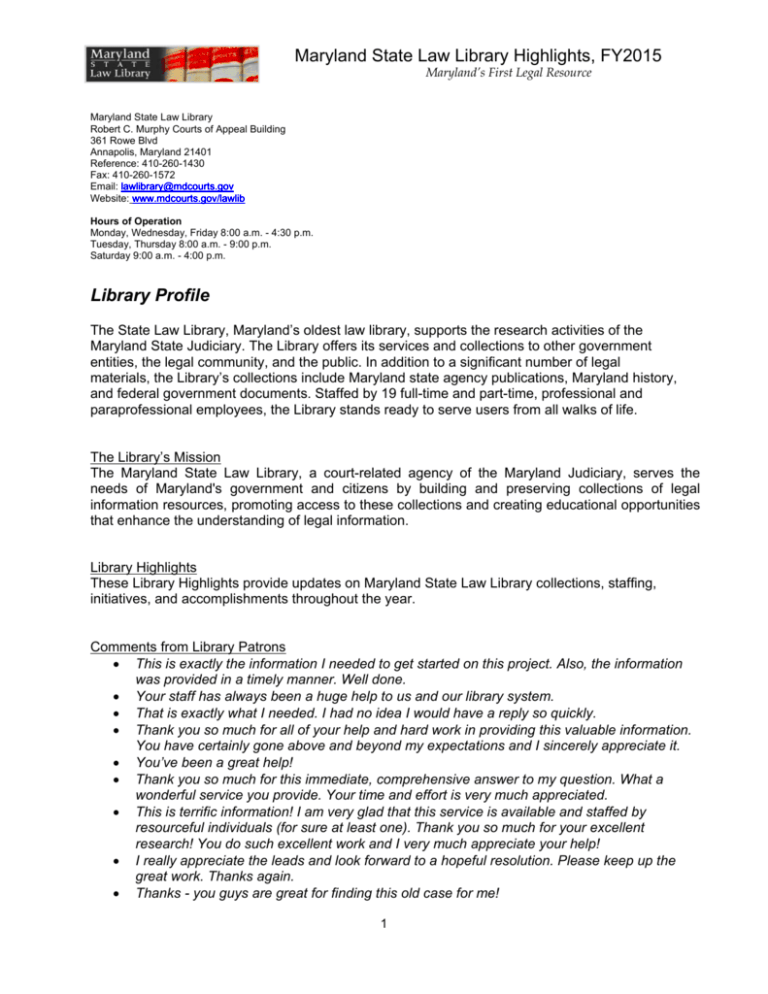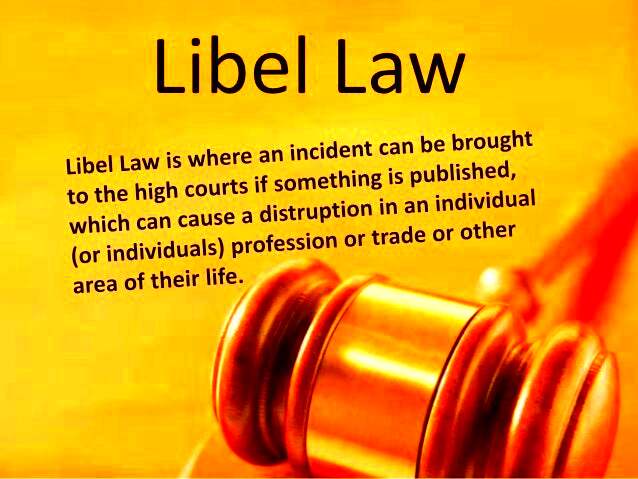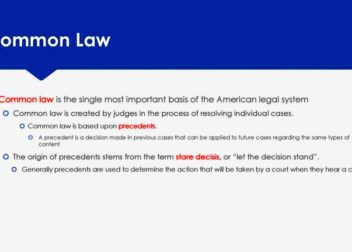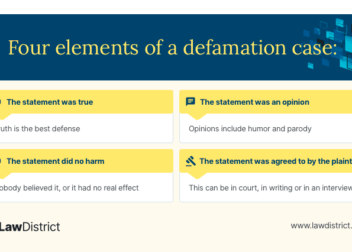An Overview of Maryland’s Libel Laws and Their Application
Libel laws play a crucial role in protecting individuals from false statements that can damage their reputation. In Maryland, these laws are designed to balance the right to free speech with the need to safeguard personal dignity. Understanding how libel laws work is essential for anyone who shares information publicly, whether through social media, news articles, or other forms of communication. This post will explore the definition of libel, its key elements, and how it differs from slander, providing a clear overview of Maryland’s libel laws.
Definition of Libel and Its Key Elements

Libel is a form of defamation that involves making false statements about someone in a written or published format. To successfully prove a libel claim in Maryland, several key elements must be established:
- Publication: The statement must be made public, meaning it was communicated to at least one other person.
- Falsity: The statement must be false. Truth is a complete defense against libel claims.
- Defamatory Nature: The statement must harm the reputation of the person it concerns.
- Identification: The statement must identify the person, either explicitly or implicitly.
- Fault: The plaintiff must show that the defendant acted with negligence or actual malice, depending on the status of the plaintiff (public figure or private individual).
Each of these elements plays a vital role in determining whether a libel claim is valid under Maryland law.
Differences Between Libel and Slander
While both libel and slander fall under the umbrella of defamation, they differ in significant ways. Understanding these differences is important for anyone navigating defamation laws:
| Aspect | Libel | Slander |
|---|---|---|
| Medium | Written or published statements | Spoken statements |
| Durability | Typically more permanent | Usually more fleeting |
| Proof of Damages | Generally, damages are presumed | Must typically prove actual damages |
| Examples | Newspaper articles, social media posts | Conversations, speeches |
In summary, libel involves written or published false statements, while slander involves spoken ones. Understanding these differences can help individuals navigate potential legal issues related to defamation more effectively.
Legal Standards for Proving Libel in Maryland
Proving libel in Maryland requires meeting specific legal standards. The plaintiff must demonstrate several key elements to succeed in their case. The burden of proof can vary depending on whether the person defamed is a private individual or a public figure. Here are the primary standards that must be met:
- Publication: The statement must have been published or communicated to a third party. This can include anything from print media to online posts.
- Falsity: The statement in question must be false. If the statement is true, it cannot be considered libelous, regardless of how damaging it may be.
- Defamatory Nature: The statement must be shown to harm the reputation of the individual involved. This might mean demonstrating that the statement could lower the person’s standing in the community.
- Identification: The plaintiff must prove that the statement refers to them, whether directly or indirectly.
- Fault: In cases involving public figures, the plaintiff must show actual malice, meaning the defendant knew the statement was false or acted with reckless disregard for the truth. For private individuals, only negligence needs to be proven.
These legal standards help ensure that only legitimate claims of libel are pursued in Maryland, striking a balance between protecting reputations and safeguarding free speech.
Defenses Against Libel Claims
Defendants in libel cases have several defenses they can use to counter a claim. Knowing these defenses can help individuals understand their rights and obligations when it comes to publishing information. Here are some common defenses against libel claims:
- Truth: The most powerful defense is the truth. If the statement is true, it cannot be considered libel, regardless of how harmful it might be.
- Opinion: Statements that are clearly opinions and not presented as facts may be protected, as they are not subject to libel claims.
- Privilege: Certain statements made in specific contexts, such as court proceedings or legislative sessions, may be protected under absolute or qualified privilege.
- Consent: If the plaintiff consented to the publication of the statement, they cannot claim libel.
- Failure to Prove Fault: If the plaintiff cannot demonstrate that the defendant acted with the requisite level of fault—negligence or actual malice—the claim may fail.
Understanding these defenses is crucial for both potential plaintiffs and defendants in libel cases. They highlight the complexity of libel law and the importance of context when evaluating statements.
Recent Case Examples of Libel in Maryland
Recent case examples can provide valuable insights into how libel laws are applied in Maryland. Here are a few notable cases that illustrate the complexities of libel claims:
| Case Name | Year | Summary |
|---|---|---|
| Smith v. Jones | 2021 | A local journalist was sued for libel after publishing an article alleging that a businessman engaged in fraudulent activities. The court ruled in favor of the journalist, stating that the claims were based on verified sources. |
| Doe v. ABC News | 2022 | A public figure claimed libel after a news report included false statements about their personal life. The court found that the news outlet acted with negligence in verifying the facts. |
| Johnson v. City Gazette | 2023 | A city newspaper faced a libel suit after publishing an editorial criticizing a public official. The court ruled that the editorial was protected opinion and not actionable. |
These cases highlight how the legal standards for proving libel can vary based on the context and the parties involved. Understanding these precedents can help individuals navigate the complexities of libel laws in Maryland.
The Role of Intent and Negligence in Libel Cases
In libel cases, the concepts of intent and negligence are critical factors that determine the outcome. The court must assess whether the defendant acted with the appropriate level of fault when making the defamatory statement. Here’s how each plays a role:
- Intent: This refers to the defendant’s state of mind when making the statement. For public figures, the standard is higher; they must prove that the defendant acted with “actual malice,” meaning the defendant knew the statement was false or acted with reckless disregard for the truth.
- Negligence: This is the failure to exercise reasonable care in verifying the information before publication. For private individuals, proving negligence is enough to establish liability. If the defendant did not take the necessary steps to confirm the truth of the statement, they may be found liable.
Understanding the distinction between these two concepts is essential. Intent involves a conscious decision to publish potentially harmful information, while negligence deals with the lack of care taken to ensure the information is accurate. Courts evaluate these factors to protect both free speech and individuals’ reputations.
Frequently Asked Questions about Maryland’s Libel Laws
Many people have questions about libel laws, especially given how easily information can spread in today’s digital age. Here are some frequently asked questions about libel in Maryland:
- What is the statute of limitations for filing a libel claim in Maryland? Generally, the statute of limitations for libel is one year from the date the defamatory statement was published.
- Can I sue for libel if the statement was made on social media? Yes, statements made on social media can be subject to libel claims if they meet the necessary legal standards.
- Are public figures treated differently than private individuals in libel cases? Yes, public figures must prove actual malice, while private individuals only need to show negligence.
- What if the statement was made as an opinion? Expressions of opinion are generally protected and may not be actionable as libel if they do not imply false factual assertions.
These questions help clarify the legal landscape surrounding libel and can assist individuals in understanding their rights and responsibilities.
Conclusion on Understanding Libel Laws in Maryland
Understanding libel laws in Maryland is vital for anyone involved in publishing information, whether professionally or personally. The laws aim to protect individuals from false statements that can damage their reputation while also safeguarding free speech. Key elements like publication, falsity, and the intent or negligence of the defendant play significant roles in determining the outcome of libel cases. By grasping these concepts, individuals can navigate potential legal challenges more effectively.
Whether you’re a journalist, a business owner, or simply someone who shares opinions online, being aware of Maryland’s libel laws can help you communicate responsibly. Always remember, while sharing information is important, it’s equally essential to ensure that it is accurate and truthful.


